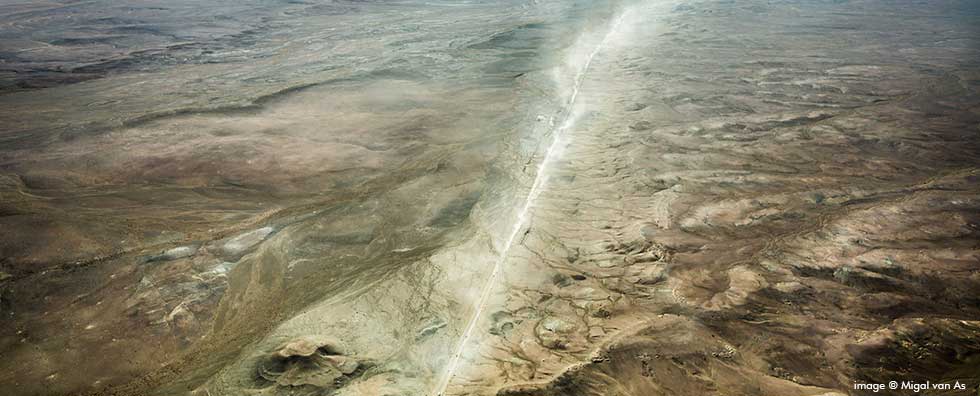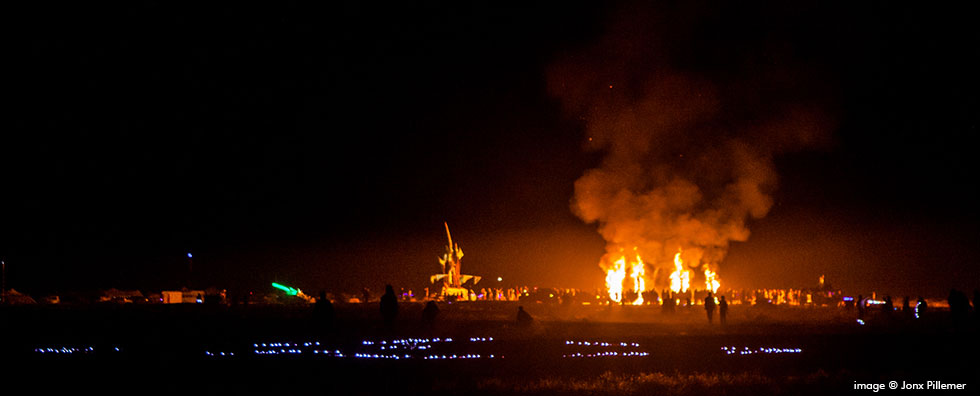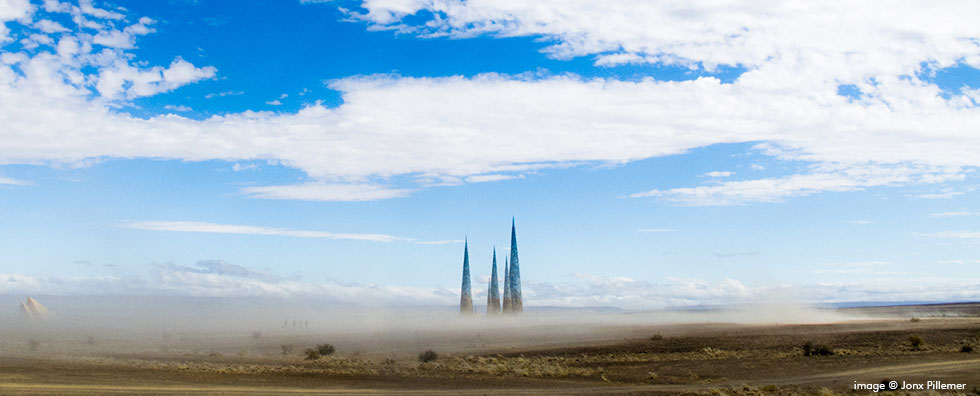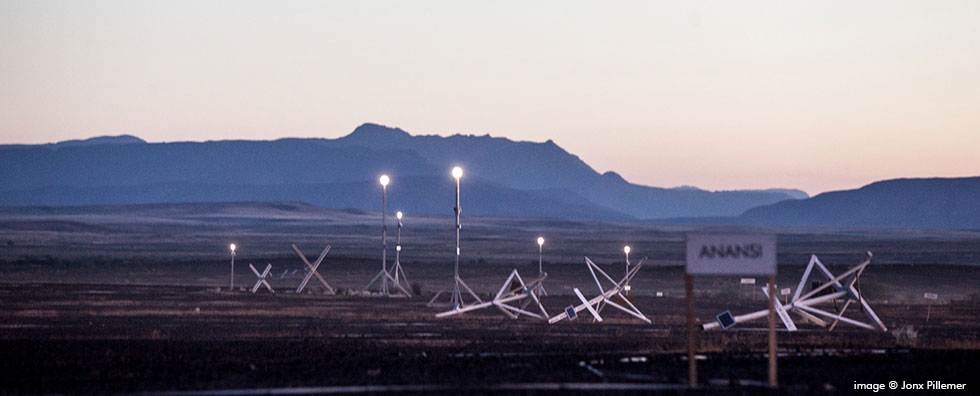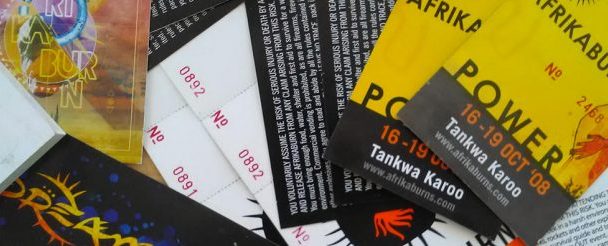Guiding Principles
AfrikaBurn is a Burning Man regional event, and our guiding principles are based on the Ten Principles of Burning Man, to which we have added an 11th, in 2011 – Each One Teach One – that encourages the sharing of knowledge.
These principles aren’t commandments, and they’re not rules – they’re ideals that offer guidelines to how we as a community can reinvent the world, and ourselves.
Burning Man co-founder Larry Harvey wrote the Ten Principles as guidelines for the newly-formed Regional Network, in 2004. They were crafted not as a dictate of how people should be and act, but as a reflection of the community’s ethos and culture as it had organically developed since the event’s inception.
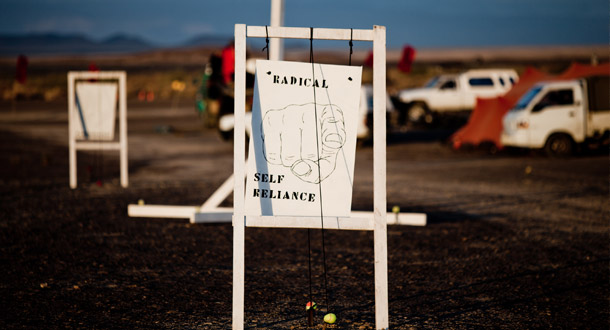
RADICAL INCLUSION*
Everyone should be able to be a part of AfrikaBurn. As an intentional community, committed to inventing the world anew, we actively pursue mechanisms to address imbalances and overcome barriers to participation, especially in light of past, current and systemic injustice.
We welcome and respect the stranger. Anyone can belong.
GIFTING
We are devoted to acts of gift giving. The value of a gift is unconditional. Gifting does not contemplate a return or an exchange for something of equal value.
DECOMMODIFICATION
In order to preserve the spirit of gifting, our community seeks to create social environments that are unmediated by commercial sponsorships, transactions, or advertising. We stand ready to protect our culture from such exploitation. We resist the substitution of consumption for participatory experience.
RADICAL SELF-RELIANCE
AfrikaBurn encourages the individual to discover, exercise and rely on his or her inner resources.
RADICAL SELF-EXPRESSION
Radical self-expression arises from the unique gifts of the individual. No one other than the individual or a collaborating group can determine its content. It is offered as a gift to others. In this spirit, the giver should respect the rights and liberties of the recipient.
COMMUNAL EFFORT
Our community values creative cooperation and collaboration. We strive to produce, promote and protect social networks, public spaces, works of art, and methods of communication that support such interaction.
CIVIC RESPONSIBILITY
We value civil society. Community members who organise events should assume responsibility for public welfare and endeavor to communicate civic responsibilities to participants. They must also assume responsibility for conducting events in accordance with national and local laws.
LEAVING NO TRACE
Our community respects the environment. We are committed to leaving no physical trace of our activities wherever we gather. We clean up after ourselves and endeavor, whenever possible, to leave such places in a better state than when we found them.
PARTICIPATION
Our community is committed to a radically participatory ethic. We believe that transformative change, whether in the individual or in society, can occur only through the medium of deeply personal participation. We achieve being through doing. Everyone is invited to work. Everyone is invited to play. We make the world real through actions that open the heart.
IMMEDIACY
Immediate experience is, in many ways, the most important value in our culture. We seek to overcome barriers that stand between us and a recognition of our inner selves, the reality of those around us, participation in society, and contact with a natural world exceeding human powers. No idea can substitute for this experience.
EACH ONE TEACH ONE
As a self-reliant community, we believe the responsibility of spreading our culture lies with each and every one of us. All of us are custodians of our culture – when the opportunity presents itself, we pass knowledge on.
*In early April 2019, after consultations with Burning Man Project’s team, and in response to our organisation’s wish to acknowledge that the principle of Radical Inclusion (as originally set out by Larry Harvey in 2004) would benefit from a recontextualisation that reflected the South African context, the content of that principle was changed to the text you now see reflected above.
For more info and the supporting rationale on this, please see our announcement on Latest News, and the Inclusivity page linked via that announcement.
HELP US TRANSLATE THESE PRINCIPLES!
We’d really like to get the principles that inform our event (and culture) translated into many more languages, including mother tongues from Mzantsi like Sesotho, Sesotho sa Leboa, Setswana, Sepedi, and Xitsonga, isiNdebele, Tshivenda and more – if you have any suggestions, or if you’re interested in helping us to make that happen, or know anyone who might be, please get in touch by emailing [email protected].
Alternatively, you can download a copy of the principles in English right here, and go right ahead with your translation – and then mail us at [email protected] so we can get them up here along with the rest.
Translated versions:
isiXhosa
isiZulu
Afrikaans
Kiswahili
עִברִית
عربى
Español
Ελληνικά
Français
Italiano
Nederlands
Portuguese
Deutsch
Česky
Indonesian
Slovensky
汉字
Many thanks to the following members of our community for their assistance in translation:
Andile Mdakane
Andrea Paige
Andrea Paracucchi
Arthur Zuijlen
Craigieji Makhosi
David Albert Michael Amira
Hai Yang
Ivana Javorkova
Jakobine Wolf
Lia D’Amico
Lorenzo Nerantzis
Paula Giusti
Rakefet Bar-Sella
Raphaël Ariello
Reham Sharbaji
Ryno Smit

